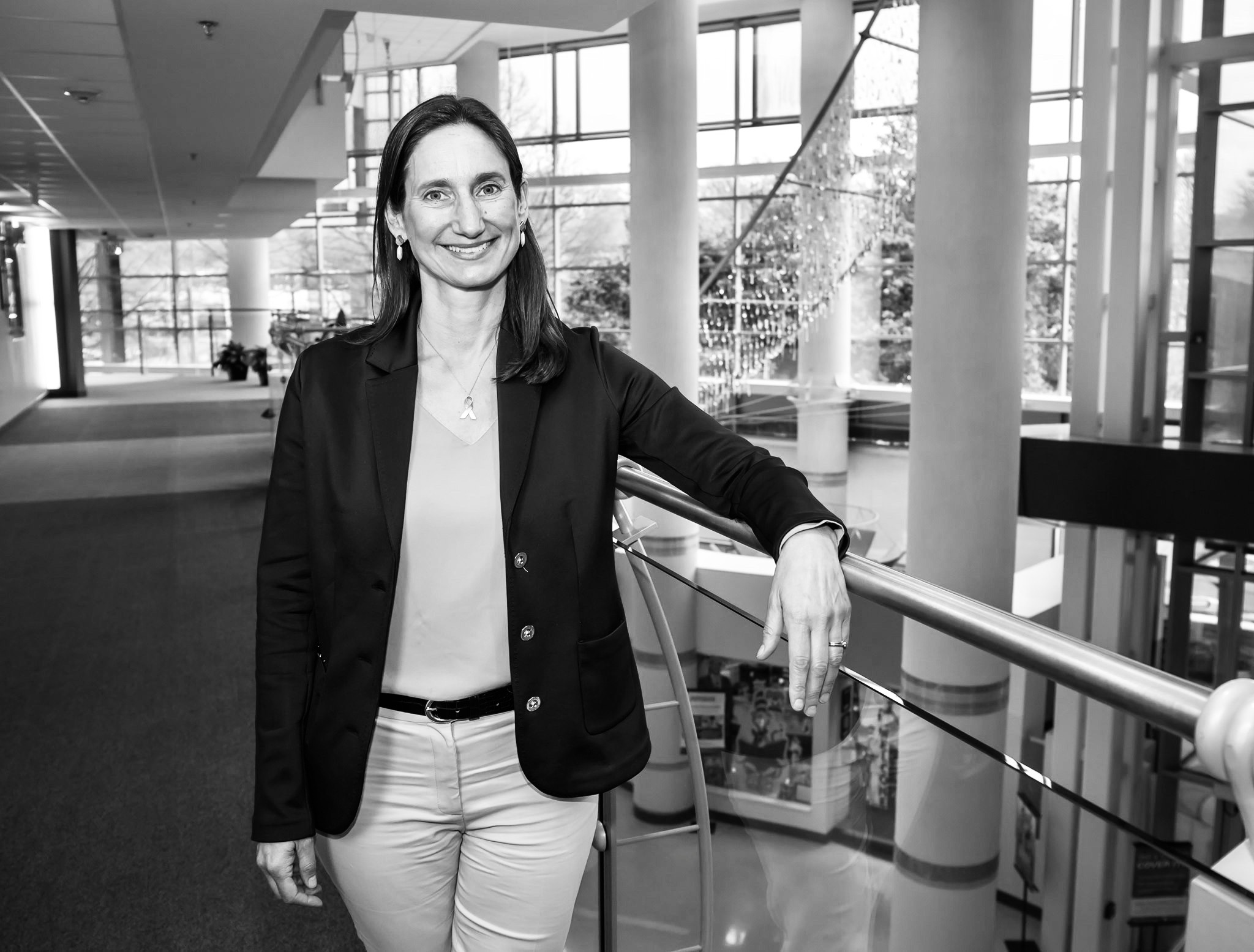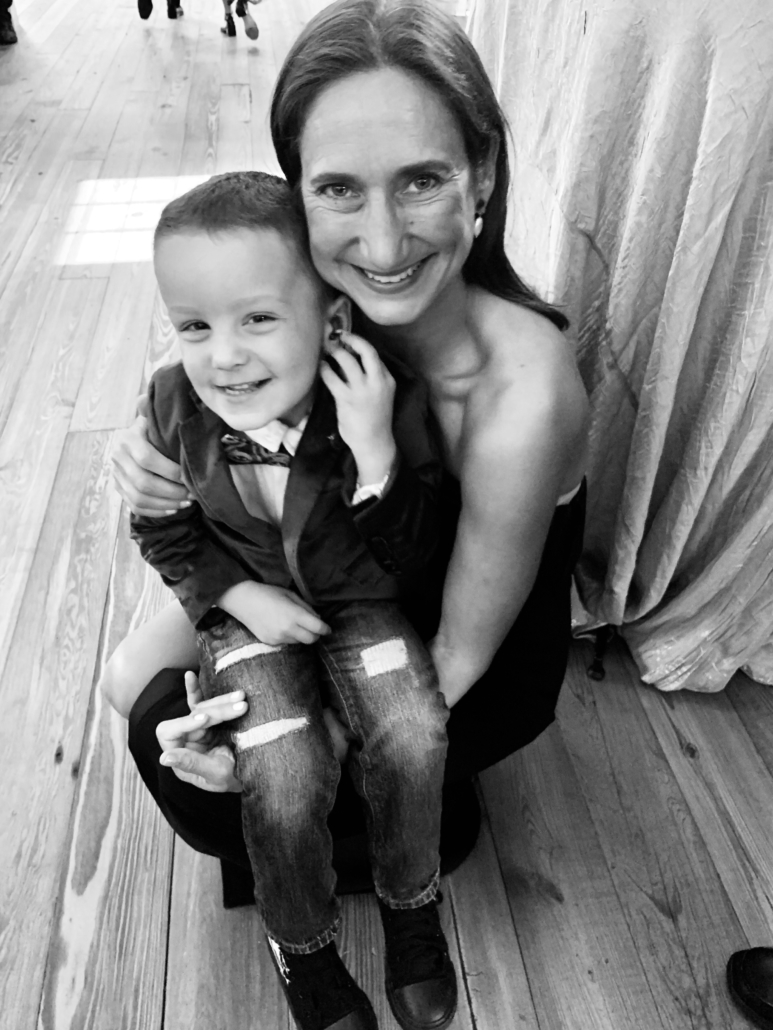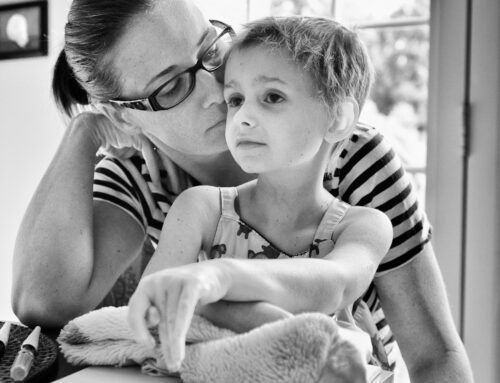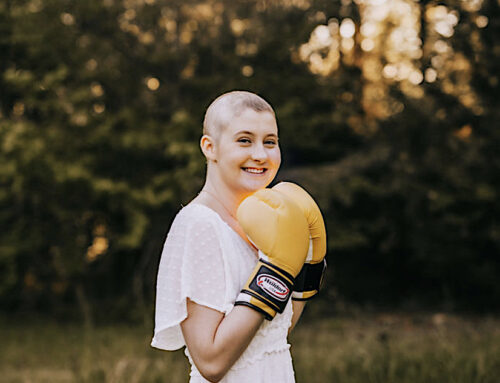
Through My Eyes: Pediatric Oncologist Working to Change Outcomes for High-Risk Pediatric Cancer Patients
Through My Eyes: Pediatric Oncologist Working to Change Outcomes for High-Risk Pediatric Cancer Patients
Written by Lauren Moskowitz & Dr. Giselle Sholler
“Through My Eyes” is a series in which those affected by childhood cancer share a behind-the-scenes look into the ripple effect cancer has in their lives. Our goal is to raise $50,000 for rare pediatric cancer research in the month of September. Become aware & donate. [Presented by Atrium Health Levine Children’s]
- Perspective: Pediatric Oncologist
- Name: Dr. Giselle Sholler
- Title: Director of the Isabella Santos Foundation Solid and Rare Tumor Program
- Hospital: Atrium Health Levine Children’s
Dr. Sholler was featured on our social channels (Instagram & Facebook) on 9/21/20 to share more about herself and what she is hoping to do for kids fighting cancer.
Who is Dr. Sholler?

Meet Dr. Giselle Sholler. A world-renowned pediatric oncologist, known for her research, and the new director of the Isabella Santos Foundation Solid and Rare Tumor Program at Levine Children’s.
Dr. Sholler’s love for research and pediatric oncology blossomed early in her medical studies. It began in her fellowship when she had three patients with neuroblastoma, a rare cancer primarily found in children. At the time, the survival rate for neuroblastoma was only 30%, and sadly she lost two of her three patients. Dr. Sholler knew right then and there she would dedicate her life to finding a cure and changing the outcomes for all high-risk pediatric cancer patients.
Now, almost 20 years later, she has done just that! The survival rate of neuroblastoma has doubled to 60% in recent years and motivates her continuous dedication to finding new therapies to treat this type of cancer. Rather than relying on only the standard chemotherapy treatment, Dr. Sholler and her research consortium specialize in emerging therapies and an individualized approach for each child’s unique genetic or molecular profile. This research, done at The Isabella Santos Foundation Rare & Solid Tumor Program at Levine Children’s is designed to help these families, not just with clinical care but also with compassionate care. She believes strongly that you have to take care of the whole family and the patient’s many needs through nutrition, child life, psychology and integrative medicine.
Additionally, she states that one of the things that keep her invigorated is hope. “Hope can mean different things at different times in a patient’s journey. Whether it’s hope to find a cure, hope for remission, hope for another Christmas, or hope to have a pain-free day, it’s the hope that can carry families through this journey.”
Please join us in celebrating Dr. Sholler and her commitment to finding a cure for all high-risk pediatric cancers.
Why are foundations like ISF important?
 Dr. Giselle Sholler wears a lot of different hats as the director of The Isabella Santos Foundation Solid and Rare Tumor Program at Levine Children’s. In addition to her full-time role of caring for pediatric cancer patients, she is also dedicated to research that improves treatments and ultimately strives to find a cure for cancer. Her mission aligns perfectly with the Isabella Santos Foundation’s vision to invest in research to fund a cure.
Dr. Giselle Sholler wears a lot of different hats as the director of The Isabella Santos Foundation Solid and Rare Tumor Program at Levine Children’s. In addition to her full-time role of caring for pediatric cancer patients, she is also dedicated to research that improves treatments and ultimately strives to find a cure for cancer. Her mission aligns perfectly with the Isabella Santos Foundation’s vision to invest in research to fund a cure.
“Most pediatric cancer research is funded through philanthropy. Pediatric cancer is rare, and so the amount of money government-wise and grant-wise for pediatric cancer research is very, very limited. With philanthropies [like ISF], it’s incredible how they can jumpstart funding and research…and this enables us to open trials quickly and reach children immediately.”
ISF has been a huge supporter of the solid and rare tumor program at Levine Children’s and even pledged $5 million in 2018! This support from ISF and other foundations are driving forces behind the advancements in finding a cure for childhood cancer.
What change would you like to see in the next 20 years with pediatric cancer?
 Currently, chemotherapy is one of the most common types of treatment for cancer. However, we’ve had the same chemotherapy for over 40 years, and it can be incredibly toxic for patients. Dr. Sholler explains, “Chemo hurts the cells of the body and can leave lasting effects on patients for years to come. For example, up to 70% of neuroblastoma patients have partial or significant hearing loss after chemo.”
Currently, chemotherapy is one of the most common types of treatment for cancer. However, we’ve had the same chemotherapy for over 40 years, and it can be incredibly toxic for patients. Dr. Sholler explains, “Chemo hurts the cells of the body and can leave lasting effects on patients for years to come. For example, up to 70% of neuroblastoma patients have partial or significant hearing loss after chemo.”
Dr. Sholler hopes that over the next 20 years, we can replace the old toxic chemotherapy and learn to treat the cancer more intelligently and personalize their therapy with lower toxicity agents. “Much of the work that we focus on is in understanding the genomics of a patient’s [cancer] and identifying targeted therapy aimed at treating the cancer cells selectively, thereby decreasing toxicity.”
She’s already making significant strides at her goal, with a drug in clinical trials called DFMO. DFMO is a drug that that we believe targets the cancer stem cells in neuroblastoma. “Currently, children receive a significant amount of aggressive chemotherapy, and surgery followed by a bone marrow transplant, radiation, and antibody therapy. After a year of very harsh treatment, 50 to 60% remain in remission, but still 40% relapse.” She continues, “So with this medication, DFMO is targeting the cancer stem cells or the cells that may cause a relapse. In 2018 we published the results of a study showing that only about 16% of children are relapsing out to four years, and 97% of the kids on that study are still alive.” That’s an incredible change in neuroblastoma treatment just by adapting a maintenance therapy to prevent relapse, resulting in more children being cured.
We’re proud to have Dr. Sholler and her research consortium on our team to help find a less toxic and more personalized therapy to fight pediatric cancer.
Photos were taken before the coronavirus pandemic and may not reflect current health and safety policies.
*** THROUGH MY EYES: THIS IS CHILDHOOD CANCER SERIES
8.26: A Glimpse into Childhood Cancer Awareness Month
8.30: Cancer Free & Living Her Dreams
8.31: Through My Eyes: This is Childhood Cancer
9.1: How Did “Through My Eyes” Start?
9.2: Through My Eyes: Cancer Family Finds Light During Daughter’s Neuroblastoma Journey
9.7: Through My Eyes: Week 1 Results
9.8: Through My Eyes: Cancer Parents Facing the Unimaginable… Twice.
9.13: Through My Eyes: Week 2 Recap
9.15: Through My Eyes: Osteosarcoma Survivor Thrives in College After Battling Cancer
9.17: Through My Eyes: 15 Years Old & Fighting Cancer
9.20: Through My Eyes: Week 3 Recap[/av_textblock]




